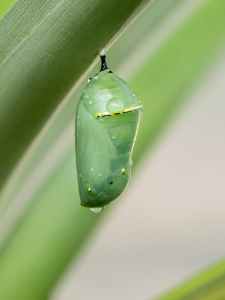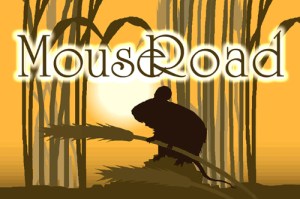 Photo courtesy of Shannon Page
Photo courtesy of Shannon PageSummers in my tween years were not pleasant. Most of this was due to the standard tween-centric issues—the struggle for self-definition, the complete lack of agency, the all-too-natural desire to take the bit in one’s teeth and reject all elder pressure to conform—but there was one recurring event that made those summers even less pleasant: trips to the Iron Range of northern Minnesota.
My stepmom came from the Iron Range—north of Duluth, the little town of Gilbert, MN—and for a few years we trekked out there from my hometown north of San Francisco to visit her relations (of which there were many). I remember three trips; the first was by airplane, and the next two were (sadly) by car.
It’s not that it was a total misery from start to finish, but at that age I’d not yet learned to appreciate the excitement and exploratory thrill of travel. The road trips, in particular, were little more than a purgatory of boredom which I suffered in the station wagon’s “way back” listening to one of the three 8-track cassettes I had been allowed to bring. My folks would turn off the front speakers and I would listen to Buffy Sainte-Marie or Simon & Garfunkel or Quadrophenia on an eternal loop. In short, I was dour, mopey, and generally about as much fun to have along as an overfilled suitcase with a broken wheel. But still, each trip had its high point (singular).
The airplane trip’s acme was when we took an actual helicopter shuttle from Marin County to the SFO airport. That was cool. On the first road trip, we stopped at Mount Rushmore. Definite high point.
The second road trip—our final journey—was taken under a dark star, though. We broke down in Idaho, dealt with locusts and hailstorms through the Dakotas, and then hit a deer somewhere north of Duluth (it was then I learned that, for insurance purposes in Minnesota, deer were considered “falling objects” and hitting one was covered, which was good for my folks, as our Vista Cruiser took a serious beating).
But that trip had a high point, too. By this time, I’d learned some of the names of the myriad relations we visited with, and even enjoyed the company of some of the kids my age. One night, staying in a relative’s cabin by a lake (don’t ask me which one . . . they have thousands, you know), we went out for a walk, and it was on that walk that I saw three new things at once: fireflies, foxfire, and the aurora borealis.
I’d camped a lot as a kid. I’d backpacked through the Point Reyes National Park, bushwhacked my way through the hills behind my home, and ridden my bike up the coast, staying in campgrounds along the way (hey, it was a different time, back then). But never, ever, had I seen anything that naturally glowed in the dark, much less three things in one night. The auroras were the most difficult to see, given the trees and all, but from the south edge of the lake we got a view of them. I remember green ribbons, vague and hazy, sliding above the treetops in the distant north on that short but moonless summer night.
I’d always wanted to see them again, except with a better view.
This weekend, I got my wish.
Seattle was “in the zone” for auroras formed by the recent solar storm and CMEs that blasted our way, and while anything astronomical—be it meteor showers or eclipses or auroras—will, nineteen times out of twenty, be met with cloudy skies, leaving us skunked, this was not one of those times.
I became aware of something going on when, near midnight, as I was drifting off to sleep, I heard voices out on the street. Then I got a text from my neighbor, alerting me to the show above. Then a second text: “They’re getting brighter!”
We got out of bed, threw on robes and such, and ventured out into the dark. About half of the block was standing out in the center of the cul-de-sac, in their PJs, staring upward and exclaiming in what I’d have to call “stage whispers,” where they wanted to be quiet but couldn’t. Naturally, I couldn’t see anything right away, but after twenty minutes or so the auroras became clear. Pinks, greens, purples, and blues, in ribbons and vortices and swirls, covered the sky from the northern treetops to the sky’s zenith. People were using their phones—much more sensitive to the faint light and colors than our eyes—but I preferred to view them unaided. What surprised me, aside from the variety of colors, was how swiftly they moved, eddying with the currents of magnetic force, snaking across the heavens.
It was a priceless time, a brief hour or two, absolutely filled with wonder, spent amongst friends and neighbors.
I’m sure there were some stiff necks the next morning, but even so, some of us went out the next evening hoping to see a repeat performance (alas, it was not meant to be). I think I prefer it that way, though. It was a one-off, an isolated treat, and is all the more precious because of its singular nature.
My eyes were unable to see the truly spectacular show than did others who were farther from the city lights, but I’ll file it away, that memory, and replay it now and again, as I have that night of the fireflies and foxfire.
k






 Between work, weddings, and assembling IKEA furniture, it’s been a busy week, but somewhere in there I also managed to wrangle an invitation to an “author appreciation” festival put on by a local independent bookstore (details below).
Between work, weddings, and assembling IKEA furniture, it’s been a busy week, but somewhere in there I also managed to wrangle an invitation to an “author appreciation” festival put on by a local independent bookstore (details below).
 Unraveling Time
Unraveling Time Desert Wind
Desert Wind Ploughman's Son
Ploughman's Son Ploughman King
Ploughman King The Year the Cloud Fell
The Year the Cloud Fell The Spirit of Thunder
The Spirit of Thunder Shadow of the Storm
Shadow of the Storm The Cry of the Wind
The Cry of the Wind Beneath a Wounded Sky
Beneath a Wounded Sky Cryptogenesis: A Memoir
Cryptogenesis: A Memoir